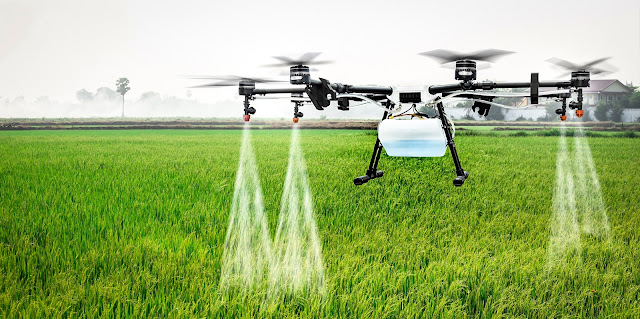Benefits of Drones in Insurance
Current Drone Market Status
Few
insurance firms deploy drones,
giving them a competitive edge and benefit. Some insurers spend millions on
large planes or human relocation, while others use inexpensive, small drones.
Using drones in insurance is cost-effective. The financial benefits include:
Safer and speedier inspections may save the sector from dangerous transactions,
ineffective claims management and fraud prevention, and delayed information
handling. Drones may conduct precise inspections that help allocate resources.
 |
| Benefits of Drones in Insurance |
Future insurance drone uses:
LOS (Line of Sight) Drones:
These
vehicles fly 400 feet or lower. They still need a pilot. Drones examine the
site and give insurance companies with precise data.
Remote Surveillance Drones:
In
two years, such drones may be available. Once we have enough drone-related
experience, we'll give them greater freedom. Drones can fly higher and further.
Autopilot drones:
In 5 years, drones might fly without humans.
This allows long-distance wireless data transfer.
Drone Roof Inspection:
Inspection is a prospective drone application.
They can reach enormous, isolated places. This treat helps with crops and
hidden hazards. Insurers may equip drones with lenses to evaluate faults better
than people. Drone roof inspections are intriguing. Checking roofs is a common
yet dangerous and time-consuming operation. A drone collects data and dangers.
Claim Processing Drones:
Claims
processing is where drones shine. They increase processing speed, accuracy, and
customer satisfaction. Insurers utilize drones to determine fire causes and
damage. They assess natural catastrophe losses and damage. Drones provide
high-resolution photographs quickly and don't need a human expert or claims
adjuster. So, an insurance firm can immediately start building and precisely
restore damaged regions.
Insurance Risk Assessment Drones:
Drones
reduce danger. According to a Deloitte report regarding insurance drone usage,
the sector has improved data collecting and lowered operating expenses. Drones
collect data on preventative maintenance and damage assessment. Better resource
allocation and investment returns save money.
Fraud Monitoring Drones:
Drones
can monitor fraud. Before and after an occurrence, drone camera pictures might
be used to verify claims. Drones acquire data and create mitigations
efficiently. The technology improves fraud monitoring and response.
Drones
are especially beneficial in agriculture. Daily data collection on 50 to 1,000
acres reduces claim settlement time from days to hours. On-site aerial photos
allow AI for autonomous analysis, which may take seconds.
Insurance Law:
The
FAA has lessened commercial drone oversight since 2016. This made drones in
insurance conceivable. Business drones
are more regulated than recreational drones. Personal insurance doesn't cover
drone operators, thus they need a license. To legally utilize drones, verify
your insurance coverage.
Author
Maryam
Saeed Dogar
For
more article, kindly read blogs by visiting at https://ihf12.blogspot.com/.
For
more videos, kindly visit our two YouTube channels
https://www.youtube.com/@imspakistan7268
https://www.youtube.com/@islamicfinance2538
Comments
Post a Comment
Please do not enter any spam link in comment box.